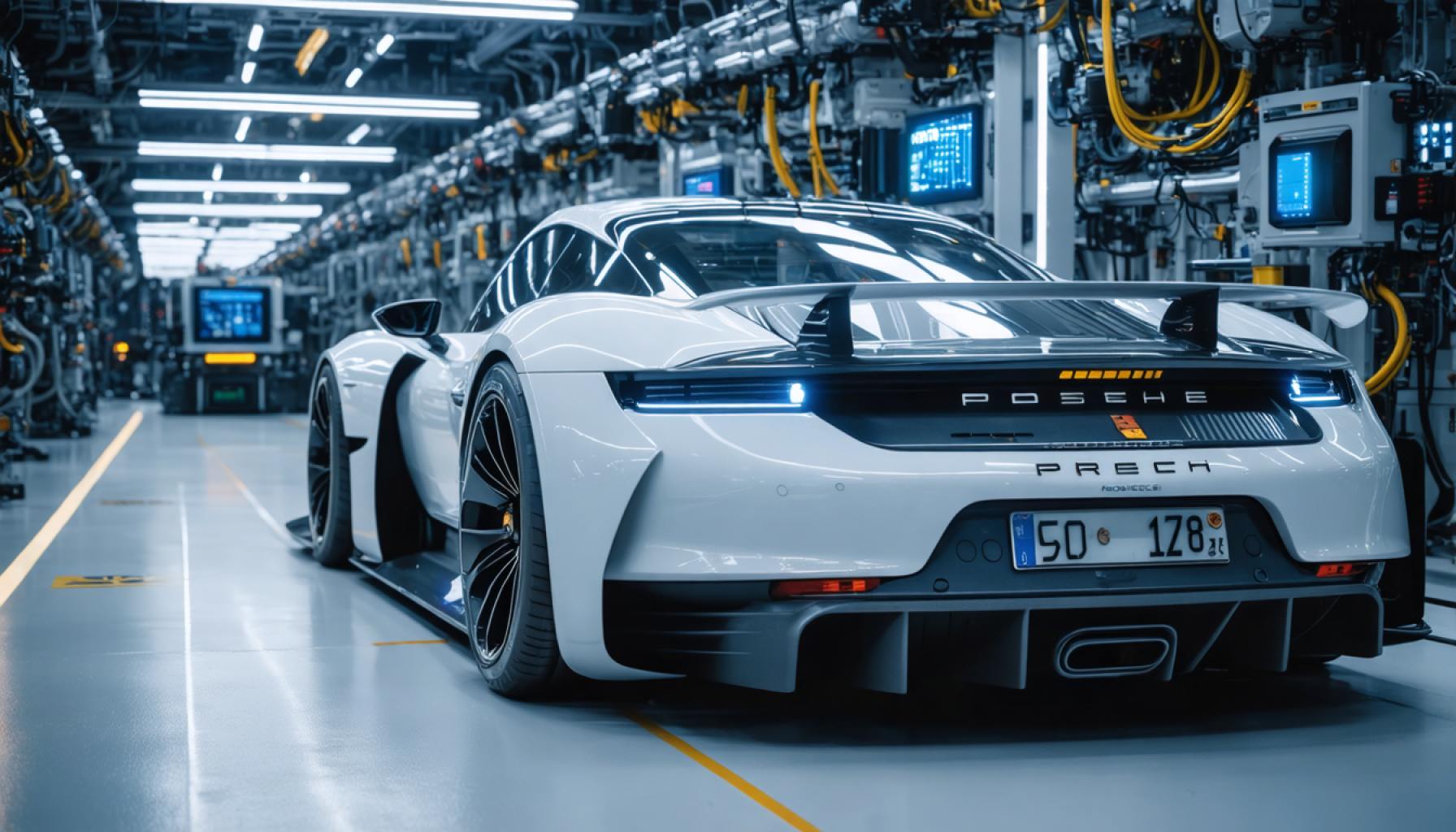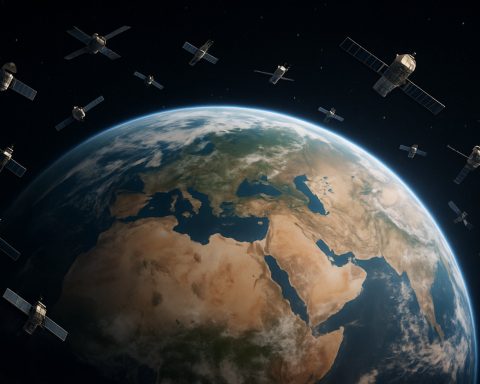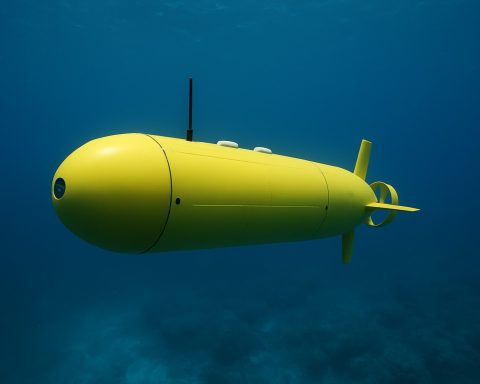- Porsche is pioneering EV battery recycling to develop a self-sustaining supply chain, showcasing its commitment to sustainable luxury manufacturing.
- The process involves transforming old EV batteries into “black mass,” rich in nickel, cobalt, manganese, and lithium.
- Porsche has successfully collected 65 tonnes of this material through advanced mechanical shredding, emphasizing the purity of these elements for creating high-performance battery cells.
- The initiative supports a circular economy model, reusing defunct batteries to produce components for new, eco-friendly vehicles.
- By adopting a closed-loop system, Porsche anticipates upcoming EU regulations demanding higher recycled material content in batteries.
- Executives highlight that this circular economy is integral to Porsche’s sustainability strategy, not just an ancillary project.
- Porsche plans to integrate recycled content battery cells into future models, reinforcing its leadership in eco-innovation.
In a world grappling with diminishing resources and a growing mandate for sustainability, Porsche is taking bold strides into the realm of electric vehicle (EV) innovation. The luxury automaker has embarked on a groundbreaking pilot project aimed at revolutionizing the way we think about EV battery recycling, with the ultimate goal of creating a self-sustaining supply chain.
At the heart of this initiative lies an intricate process that transforms spent EV batteries from old vehicles into what industry insiders coin “black mass.” This gritty substance is far from mere waste; it’s a treasure trove of critical elements like nickel, cobalt, manganese, and lithium. Through Porsche’s meticulous mechanical shredding techniques, the company has already amassed a remarkable 65 tonnes of this valuable material.
In a workshop reminiscent of a futuristic laboratory, skilled engineers extract these raw materials, ensuring they maintain crystal-clear purity. Porsche asserts that retaining the pristine condition of these elements is essential to crafting the high-performance battery cells that their cars are renowned for.
The company envisions a circular economy model, one where today’s defunct batteries are reborn as integral components in the next generation of eco-friendly vehicles. This not only addresses environmental concerns but also secures a reliable chain of supply at a time when geopolitical tensions often threaten resource availability. This strategic foresight makes Porsche a trailblazer in sustainable luxury manufacturing.
Furthermore, this innovative recycling endeavor is more than an environmental measure—it positions Porsche ahead of impending European Union regulations that will soon necessitate higher levels of recycled materials in battery production. By adopting this closed-loop system now, Porsche not only pledges allegiance to environmental responsibility but fortifies its status as a leader in the automotive industry’s green revolution.
This progressive vision is buttressed by the insights of executives like Barbara Frenkel, Porsche’s Executive Board Member for Procurement, who emphatically notes that a circular economy is not a side project but a core pillar of Porsche’s sustainability blueprint.
In the final leg of their ambitious pilot project, Porsche aims to fabricate battery cells with a specific percentage of recycled content. These cells are destined for rigorous real-world testing in upcoming Porsche models, blending recycled elements seamlessly with cutting-edge innovation.
As Porsche sets this standard, it challenges the industry to reconsider the lifecycle of EV batteries. This initiative is a clarion call that even what was once deemed waste can be harnessed to drive the future, both literally and figuratively, ensuring that luxury and sustainability travel hand in hand.
Porsche’s Bold EV Battery Recycling Initiative: Unlocking the Future of Sustainable Luxury
Overview
In a world increasingly concerned with sustainability and resource efficiency, Porsche is making significant headway in redefining electric vehicle (EV) battery recycling. Their innovative pilot project focuses on creating a self-sustaining supply chain, essentially turning old batteries into a resource for future production. This effort supports both environmental and strategic objectives, setting Porsche apart as a leader in sustainable luxury manufacturing.
How Porsche’s Battery Recycling Works
1. Black Mass Creation: At the heart of Porsche’s initiative is the conversion of spent EV batteries into “black mass,” a substance rich in critical elements like nickel, cobalt, manganese, and lithium. Through precise mechanical shredding, Porsche has amassed approximately 65 tonnes of this material.
2. Material Extraction: In a process akin to laboratory precision, engineers extract raw materials from the black mass, ensuring their purity is intact. This meticulous step is crucial for producing the high-performance battery cells that power Porsche vehicles.
3. Circular Economy Model: Porsche’s vision encompasses a circular economy where recycled materials from old batteries become foundational for new ones. This approach not only mitigates environmental impacts but also secures supply chains amidst geopolitical uncertainties.
Why This Matters
– Compliance with Regulations: Porsche’s foresight aligns with upcoming European Union regulations mandating increased recycled materials in batteries, situating the company as a proactive rather than reactive leader.
– Sustainability Leadership: By pioneering a closed-loop recycling system, Porsche underscores its commitment to environmental stewardship—an essential pillar bolstered by leaders like Barbara Frenkel, a key figure in the company’s sustainability strategy.
Real-World Implications and Trends
– Increasing Industry Adoption: As Porsche sets new benchmarks in battery recycling, other automakers may follow suit, accelerating a broader industry shift towards sustainability.
– Security of Supply Chains: In volatile geopolitical climates, a circular economy model ensures consistent access to essential resources, safeguarding against potential supply disruptions.
– Economic Viability: Over time, recycling initiatives can reduce dependency on raw material imports, fostering economic resilience.
Potential Challenges and Limitations
– Technological Hurdles: Ensuring the purity and efficiency of recycled materials in high-performance batteries is technically challenging.
– Scalability: Expanding this model beyond pilot projects to full-scale production will require significant investments and strategic partnerships.
Future Predictions
– Innovation in Recycling Techniques: Advances in technology may allow for even more efficient and cost-effective recycling processes.
– Increased Consumer Demand: As awareness of sustainable practices grows, consumer preference may further lean towards brands with robust environmental credentials.
Actionable Recommendations
– Stay Informed: Keep abreast of industry developments in sustainability and recycling.
– Support Sustainable Brands: Consider the environmental impact of your consumer choices, favoring companies that prioritize sustainability.
– Advocate for Regulation: Encourage policymakers to support initiatives that reinforce sustainable practices in automotive manufacturing.
For more insights into Porsche’s sustainable innovations and their luxury vehicles, visit the official Porsche website.









